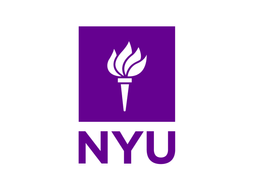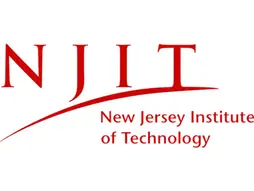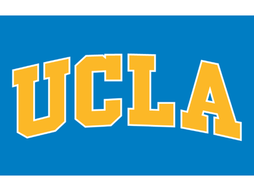11 Data Science Research Opportunities for High School Students
If you're a high school student interested in data science or related fields, participating in research programs before college can help you gain exposure to the field, explore career paths, and connect you with experienced researchers.
Data science combines statistics, computer science, and analytical thinking to uncover insights, trends, and patterns from data. Research programs allow you to apply classroom knowledge to practical scenarios and build technical skills. The connections you make through the program can lead to letters of recommendation for your college applications.
Whether you're drawn to coding, artificial intelligence, web development, cybersecurity, UX/UI design, or software development, these programs provide hands-on learning to support your career goals. Additionally, they can strengthen your college applications and prepare you for a future career in data science.
Here are 11 data science research opportunities for high school students to explore!
1. Lumiere Research Scholar Program—Data Science Track
Application Deadline: Varying deadlines based on cohort. Spring (January), Summer (May), Fall (September) and Winter (November).
Duration: Options range from 12 weeks to 1 year.
Location: Remote — you can participate in this program from anywhere in the world!
Eligibility:
You must be currently enrolled in high school
Students must demonstrate a high level of academic achievement (Note: accepted students have an unweighted GPA of 3.3 out of 4)
No previous knowledge of your field of interest is required!
Program Dates: Multiple cohorts throughout the year, including summer (June - August), Fall (September - December), Winter (December - February), and Spring (March - June).
The Lumiere Research Scholar Program is a rigorous research program tailored for high school students. The program offers extensive 1-on-1 research opportunities for high school students across a broad range of subject areas that you can explore as a high schooler. For example, if you’re interested in data science, you might get to explore topics like machine learning or software development systems.
The program pairs high-school students with Ph.D. mentors to work 1-on-1 on an independent research project. At the end of the 12-week program, you’ll have developed an independent research paper! You can choose research topics from subjects such as psychology, physics, economics, data science, computer science, engineering, chemistry, international relations, and more. You can find more details about the application here.
Location: John Crerar Library at the University of Chicago Hyde Park campus, IL
Cost/Stipend: There is no cost to participate. Participants will receive a stipend of $4,800 for the 8-week program. Housing is not provided for high school students.
Application Deadline: January 12
Dates: June 16 – August 8
Eligibility: Current high school seniors starting college in the fall or undergraduates enrolled in college for the fall residing in the Chicago area can apply. Graduating college seniors are not eligible.
Note: International students may apply but must secure U.S. work authorization and provide the required documentation to receive a stipend.
The Data Science Institute Summer Lab is a paid summer research opportunity at the University of Chicago. You will be paired with mentors specializing in computer science, public policy, materials science, social science, climate and energy policy, biomedical research, and more. As a research assistant, you’ll refine your skills in research methodologies, practices, and teamwork. You will gain hands-on experience in applied data science, developing an understanding of fundamental methodologies and specialized training tailored to your lab's focus area. Throughout the program, you will practice presenting your research, culminating in final videos showcased at an end-of-summer symposium. The program also offers professional development and training to support future data science and computing careers. To learn more about this program, check out our review here.
Location: NIST laboratory at Gaithersburg, MD or Boulder, CO
CostStipend: The program is free for accepted participants but does not offer a stipend.
Application Deadline: January 31; You can find the application guide here
Dates: June 16 – August 8
Eligibility: High school juniors, seniors, and recent graduates who are U.S. citizens
The NIST offers the Summer High School Intern Program for students interested in scientific research. Part of the U.S. Department of Commerce, NIST is one of the oldest physical science laboratories. During the program, you will work alongside scientists and engineers on a research project. NIST operates six laboratories. Students interested in data science can choose the Information Technology Laboratory, where projects may involve data mining, machine learning, software quality testing, biometrics for security, cryptography, computer network modeling, computer forensics, digital data retrieval and preservation, bioinformatics, information visualization, and image analysis.
Location: NIH Campus, Bethesda, MD
Cost/Stipend: There is no cost to participate. DSI Scholars receive compensation based on the NIH Intramural Research Training Award stipends, updated yearly and determined by education and experience levels.
Application Deadline: February 19
Dates: The program begins in June and lasts 8–12 weeks, with flexible start dates and durations.
Eligibility: Applicants must:
Be at least 18 years old by June 1.
Be a U.S. citizen or permanent resident.
Be enrolled at least half-time as a high school senior, in a U.S. college or professional school, or accepted into an accredited program for the upcoming fall.
Have a cumulative GPA of 3.2 or higher on a 4.0 scale.
Have completed coursework in computer science, data science, informatics, mathematics, or related fields.
The National Library of Medicine provides training opportunities for students from diverse backgrounds interested in computational health and biology research. The NLM DSI Scholars Program is a summer internship where you can contribute to computational research projects in the biological sciences. You’ll dedicate 40 hours weekly to research and professional development, working one-on-one with a research mentor. The program also includes seminars and workshops to enhance scientific communication skills. It concludes with a presentation at NLM’s Summer Poster Day, with potential opportunities to present at the NIH-wide Summer Poster Day. Details about NLM research areas can be found on the NLM Division of Intramural Research website.
Location: Discovery Partners Institute, Chicago, IL
Cost: The program is free, with public transit passes provided for students with financial needs.
Application Deadline: May 2
Dates: June 24 – August 2
Eligibility: Students entering 11th or 12th grade or their first year of college at a 2- or 4-year Illinois institution in the fall can apply.
The Digital Scholars Program aims to help underrepresented students, particularly Black, Latinx, and first-generation college students, gain exposure to technology fields. During the program, you will work with university researchers and industry experts on real-world projects like artificial intelligence and sustainability. The program offers courses in computer science, data science, electrical and computer engineering, or mobile app development, such as Foundations of Computer Science and Coding Mobile App Design. Weekly workshops cover AI, machine learning, data science, and entrepreneurship, with speakers from Chicago’s top tech incubators. You will also gain college and career readiness.
Location: The program is conducted virtually, with in-person opportunities in Greater Seattle, WA.
Cost/Stipend: No cost; some projects offer stipends.
Application Deadline: April 22
Dates: The duration typically ranges from 8 to 12 weeks, usually from May to August, depending on the opportunity.
Eligibility: High school students who are U.S. citizens or permanent residents and live in the United States can apply.
The Spark Summer Mentorship Program offers high school students internships with hands-on experience. The program includes in-person and remote projects where you can apply machine learning, AI, and data visualization to real-world problems. In 2024, students focused on data science could participate in the Data Engineering and AI for Real-World Problems track, working on data pipelines, AI/ML applications, and predictive analytics to address industry challenges. You can interact with mentors, industry leaders, and university professors from various organizations. Research topics for 2024 included extreme weather, software engineering, tick-borne infections, ML workflows, quantum technologies, semiconductors, low-temperature electronics, market research, data engineering, social media content generation, and more. The program is highly selective, with an acceptance rate of around 3-5%. To learn more about this program, check out our full guide here.
Location: The program is offered in a hybrid format, primarily virtual, with optional in-person sessions at George Mason University's Fairfax Campus, VA
Cost/Stipend: The website does not specify program fees, but interested students can contact execed@gmu.edu for details about the fee structure. Information about a stipend is not provided, though participants may qualify for awards or need-based scholarships.
Application Deadline: Seats are offered on a first-come, first-served basis.
Dates: June 15 – August 16
Eligibility: All high school students can apply.
The Young Scholars NASA Data Science Program allows high school students to engage in NASA space data science and statistical research. This program combines research projects with lectures to explore astronomy and space sciences. The internship includes small group virtual telescope observing sessions at night and a five-week research project analysis and paper writing period. Working on active NASA mission research, you’ll receive mentorship to develop professional-quality scholarly papers. You’ll learn more about NASA mission data analysis, observational astronomy, statistical analysis, and the private space industry's impact on space policy. Additionally, completed research papers will be published on George Mason University's Schar School Young Scholars Journals webpage. For the 2024 program, only 50 students were accepted.
Location: The program is offered in person at the Johns Hopkins University Applied Physics Laboratory in Laurel, MD, or virtually.
Cost/Stipend: Free for all accepted participants; unpaid
Application Deadline: February 15
Dates:
Summer session: June 24 – August 21
Academic year session: September 15 – December 31
The ASPIRE Student Showcase capstone event will be held in May
Eligibility: High school juniors and seniors aged 15 or older with a GPA of 2.8 or higher who are permanent residents of one of the specified Maryland counties are eligible to apply.
The ASPIRE program allows high school students to explore STEM careers before choosing a college major. In the program, you will collaborate with lab staff on projects that develop technical and interpersonal skills. Virtual participants will work remotely but must attend in-person sessions for onboarding, returning equipment, and troubleshooting. You will choose an area of interest when applying, but the program will assign your mentor and project. If you're interested in data science, you can conduct research in areas like Mathematics and Data Analysis, Artificial Intelligence (AI) and Machine Learning, or Programming and Computer Science. You can select up to three project types: public relations, research and development, or social impact. To learn more about this program, check out our full guide here.
Location: Virtual
Cost/Stipend:
Application fee: $40
Program participation fee for accepted students: $850
The application and program participation fees can be waived based on financial need.
Application Deadline: February 28
Dates: June 16 – 27
Eligibility: Students who will be entering grades 9–12 in the fall, will be at least 14 years old by the program's start, and live in the U.S. can apply.
The Stanford Center for Artificial Intelligence in Medicine and Imaging offers a two-week summer internship for high school students interested in technology and AI. During your internship, you will work on a practical AI problem in medicine while attending lectures on AI in healthcare and gaining experience with research projects. You will receive mentorship from Stanford students and researchers and attend Virtual Career Lunch and Learn sessions with guest speakers. There may also be opportunities for an extended independent research internship for interested students. About 25 students are selected each year, and those who complete the program will receive a Certificate of Completion.
Location: Stony Brook University, Stony Brook, NY
Cost/Stipend: Participating is free, and a stipend is provided.
Application Deadline: February 7
Dates: June 30 – August 8
Eligibility: High school juniors at least 16 years old who are U.S. citizens or permanent residents can apply.
Stony Brook University’s Simons Summer Research Program provides high school juniors the chance to engage in STEM research under the guidance of faculty mentors. You will join a research group and contribute to a research project. By the end of the program, you will complete a written research abstract and create a research poster. Admission is highly competitive, with an acceptance rate of about 5%. Research areas for the 2025 program include Applied Mathematics and Statistics, Biochemistry, Computer Science, Atmospheric Sciences, Biomedical Informatics, Chemistry, Electrical and Computer Engineering, Geosciences, Physics & Astronomy, Civil Engineering, Medicine, and more. A list of mentors and research topics for Summer 2025 is available here. One option for those interested in data science is to work with Dr. Yuefan Deng from the Applied Mathematics & Statistics Department on developing algorithms for high-performance computing, machine learning, and multiscale modeling to simulate biological and medical processes. To learn more about this program, check out our full guide here.
Location: Internships are available in fully remote, hybrid, and in-person formats at George Mason University in Fairfax, VA.
Cost/Stipend: The program is free to participate in, with a $25 application fee that may be waived for those with financial need. However, transportation and housing are not provided, and the internship is unpaid.
Application Deadline: February 2
Dates: June 18 – August 8
Eligibility:
Interns for remote, in-person, or hybrid internships in computer labs must be at least 15 years old by the program start date.
Interns for in-person or hybrid wet-lab internships must be at least 16 years old by the program start date.
The Aspiring Scientists Summer Internship Program allows high school students to collaborate with faculty researchers on projects at George Mason University. This internship will help you gain experience with advanced equipment and technologies, improve scientific writing and communication skills, and explore various STEM career paths. For those interested in data science, research areas include software development, machine learning, game development, cybersecurity engineering, digital innovation, and more. Past data science-based projects have focused on topics such as A JupyterLab Plugin for Data Science Best Practices, Using Machine Learning to Improve Autonomous Robot Navigation on Vertically Challenging Terrain, and Real World Data Collection for Navigation via Learning Over Subgoals Planning. You can explore previous research projects from the Department of Computer Science, School of Computing, here. Learn more about this program here.
Stephen is one of the founders of Lumiere and a Harvard College graduate. He founded Lumiere as a PhD student at Harvard Business School. Lumiere is a selective research program where students work 1-1 with a research mentor to develop an independent research paper.











